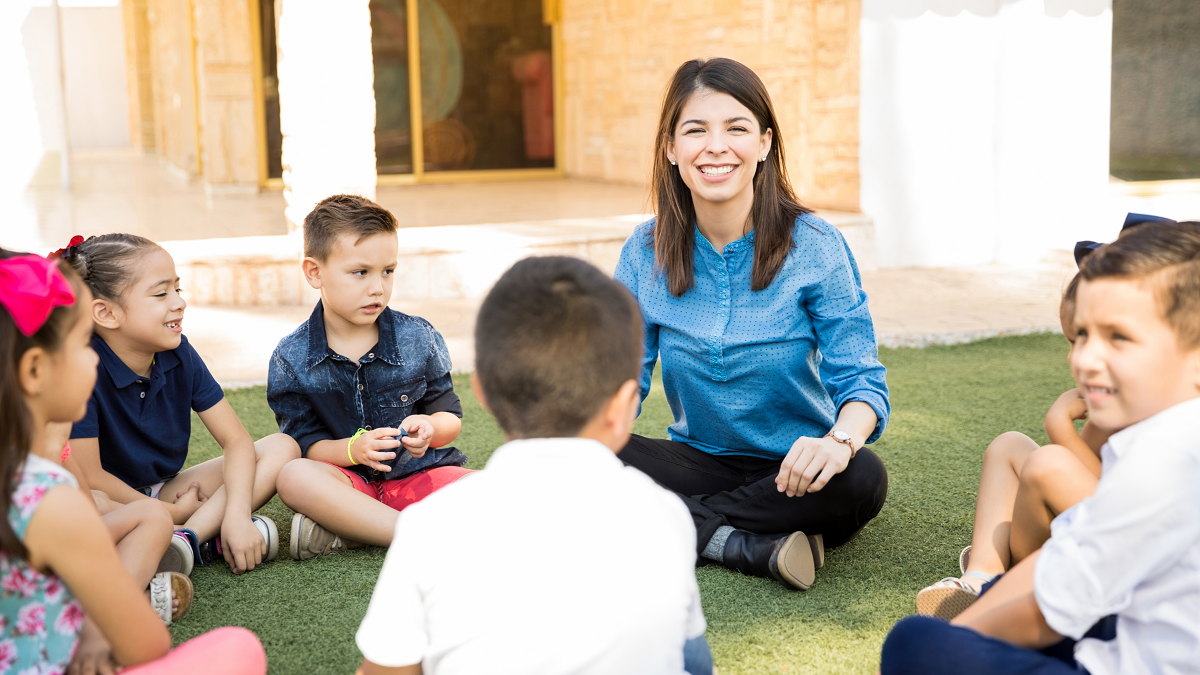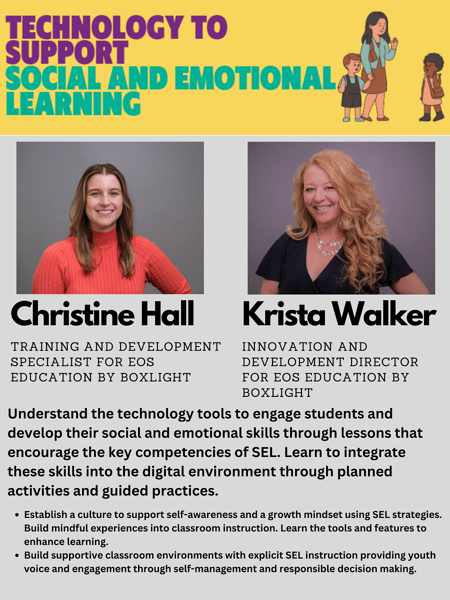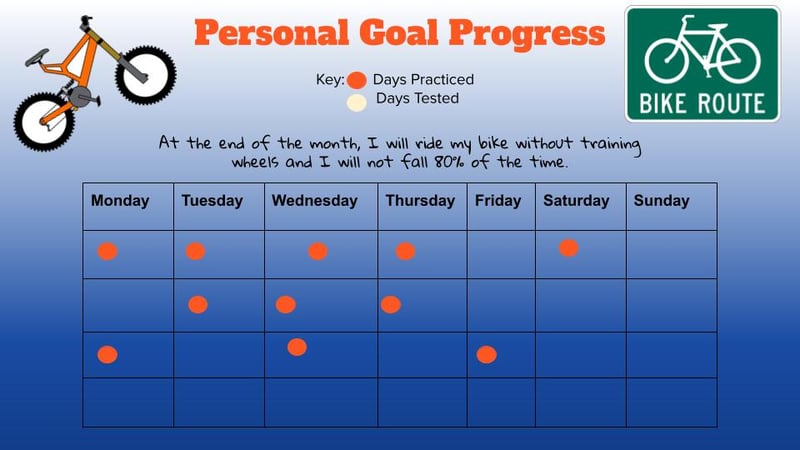
Teacher professional development plays a crucial role in fostering the successful implementation of social-emotional learning (SEL) and enhancing student learning outcomes. Educators recognize the vital importance of nurturing the social and emotional well-being of our students, alongside their academic growth. In my experience facilitating a variety of professional development sessions and workshops, student well-being inevitably becomes a topic of interest. I want to take this opportunity to share various ways in which well-designed, high-quality teacher PD can provide educators with the knowledge, skills, and resources necessary to implement SEL effectively. Together we can create a nurturing environment that fosters students' social, emotional, and academic development.
1. Deepening Understanding of Social-Emotional Learning
Through targeted professional development, educators can deepen their understanding of SEL principles, frameworks, and research-based practices. Workshops, seminars, and training sessions provide teachers with the opportunity to explore the core competencies of SEL, such as self-awareness, self-management, social awareness, relationship skills, and responsible decision-making. By gaining this knowledge, educators can effectively integrate SEL into their instructional strategies, curriculum, and classroom culture.
2. Enhancing Classroom Climate and Culture
Teacher professional development in SEL equips educators with strategies to create a positive and inclusive classroom climate. By fostering a sense of belonging, respect, and emotional safety, teachers can cultivate an environment where students feel valued, supported, and motivated to learn. Professional development can offer practical techniques for establishing clear expectations, promoting positive relationships, managing conflicts, and promoting empathy and kindness among students.
For example, during a PD session facilitated by EOS Education, teachers are introduced to digital vision boards. Teachers and students enjoy the process of reflecting on their long-term goals and creating a space to visually reflect those goals. When vision boards are shared, the classroom community becomes a safe place to help students achieve their goals and for teachers to learn more about their students’ interests.

3. Building Social-Emotional Skills Instruction
Teachers need the tools to explicitly teach social-emotional skills to their students. Professional development programs can provide educators with evidence-based strategies for incorporating SEL instruction into their daily lessons. This may include integrating SEL activities into academic subjects, utilizing cooperative learning strategies, implementing problem-solving exercises, and facilitating reflective discussions. By developing students' social and emotional competencies, educators contribute to their overall well-being and academic success.

4. Strengthening Classroom Management
Effective classroom management is essential for creating an optimal environment for social-emotional learning. Professional development can equip teachers with effective behavior management techniques, conflict resolution strategies, and restorative practices. By nurturing a classroom environment built on trust, mutual respect, and shared responsibility, teachers can foster students' self-regulation skills and create an atmosphere conducive to learning and growth.
5. Collaboration and Peer Support
Collaboration and peer support are integral components of teacher professional development, providing educators with valuable opportunities to learn from each other's experiences and adopt best practices. Through professional learning communities, workshops, and conferences, teachers can actively engage in sharing strategies, exchanging ideas, and working together to implement social and emotional learning (SEL) effectively. By actively participating in this collaborative learning process, educators not only strengthen their own teaching practices but also contribute to the collective enhancement of SEL implementation throughout the entire school community.
6. Assessing and Monitoring Student Progress
A crucial aspect of teacher professional development involves equipping educators with the necessary guidance to effectively assess and monitor students' social-emotional development. One component of SEL teacher PD by EOS Education is showing how students can self-assess. When students are involved in their own assessment and recognize their personal growth over time, they are empowered to create new goals. Students tracking their progress digitally can celebrate not only with you, but also with their school and community.

By participating in professional development programs, teachers can gain valuable knowledge on utilizing various assessment tools, making informed observations, and soliciting student feedback to measure the impact of social-emotional learning (SEL) practices. Through these opportunities, educators can acquire insights into tracking students' progress, identifying areas that require improvement, and adapting their instructional strategies accordingly to ensure optimal SEL outcomes.
Teacher professional development plays a crucial role in facilitating the effective integration of social-emotional learning in K-12 classrooms. By providing educators with the necessary knowledge, skills, and resources, we can establish nurturing environments that foster the holistic growth of students in social, emotional, and academic domains. By embracing SEL professional development, school communities can cultivate positive and supportive environments for all students to achieve their academic and personal goals.
To learn more about professional development offerings by EOS Education, including for Social and Emotional Learning, go to https://boxlight.com/services/professional-development-for-teachers.


